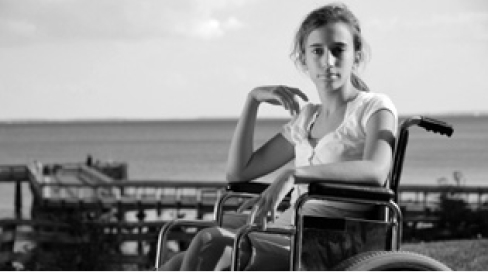Disability and Aging Considerations in Emergency Preparedness and Disaster Response: An Open Letter to Grantmakers
The following letter from Jeanne Argoff, executive director of Disability Funders Network, appeared in Foundation News and Commentary, May/June 2005, Vol. 46, No. 3.
Disabilities and Disasters
We were pleased to see your timely editorial and articles, “Philanthropy’s Tsunami Response” and “Principles of Disaster Grantmaking,” in the January/February 2005 issue. These pieces confirm the important role of grantmakers in addressing the needs of people and communities during and after emergencies and disasters, such as the recent tsunami in Southeast Asia.
We would like to further educate funders by highlighting people with disabilities who face multiple barriers to safety and survival during disasters, yet are often overlooked by rescue and recovery efforts. Our international disability networks provided numerous distressing examples of people with disabilities who were unable to leave their homes and schools during the tsunami because they lacked accessible paths of egress or needed equipment and assistance. Sadly, many also were unable to obtain needed food, medication, shelter and support in its aftermath.
To raise funders’ awareness about the importance of including the disability community in their disaster preparation, rescue and recovery efforts, the Disability Funders Network launched Emergency Preparedness for People with Disabilities: What Grantmakers Need to Know. This project — funded by The New York Community Trust, the Milbank Foundation for Rehabilitation, Citigroup Foundation, Mitsubishi Electric America Foundation and Archstone Foundation — is designed to give foundations and corporate giving programs tools and information so they can include people with disabilities in their disaster-related giving. It will produce a set of guidelines for inclusive giving, as well as a list of relevant resources and examples. These materials will be available in both web-based form and hard copy.
We invite grantmakers to join us in implementing this project and hope they will consider including people with disabilities and older adults in their disaster grantmaking. Even asking potential grantees about whether and how the needs of people with disabilities will be addressed can promote inclusion. In addition, we invite funders to review the draft materials already available on our website at www.disabilityfunders.org. Feedback about how to make these materials as user-friendly as possible would be greatly appreciated.
Thank you again for your concern about the topic of disaster grantmaking.
Jeanne Argoff
Executive Director, Disability Funders Network
Falls Church, VA
 Disability Funders Network
Disability Funders Network
